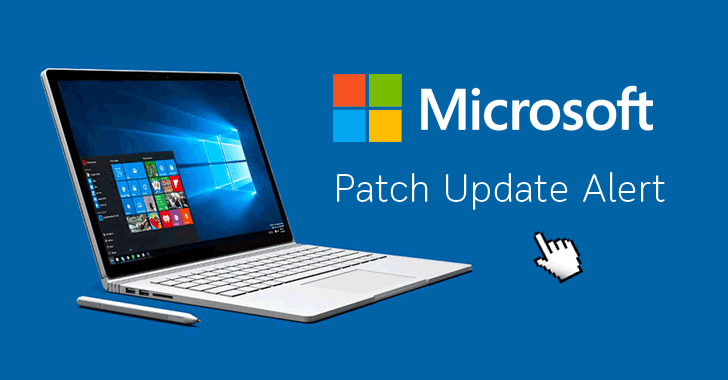Microsoft Releases Patch Updates for 53 Vulnerabilities In Its Software Microsoft Releases Patch Updates for 53 Vulnerabilities In Its Software
It's time to gear up your systems and software for the latest July 2018 Microsoft security patch updates.
Microsoft today released security patch updates for 53 vulnerabilities, affecting Windows, Internet Explorer (IE), Edge, ChakraCore, .NET Framework, ASP.NET, PowerShell, Visual Studio, and Microsoft Office and Office Services, and Adobe Flash Player.
Out of 53 vulnerabilities, 17 are rated critical, 34 important, one moderate and one as low in severity.
Critical Flaws Patched In Microsoft Products
Most of the critical issues are memory corruption flaws in IE, Edge browser and Chakra scripting engine, which if successfully exploited, could allow an unauthenticated, remote attacker to execute arbitrary code on a targeted system in the context of the current user.
"If the current user is logged on with administrative user rights, an attacker who successfully exploited the vulnerability could take control of an affected system. An attacker could then install programs; view, change, or delete data; or create new accounts with full user rights," Microsoft explains.
One of these critical flaws (CVE-2018-8327), reported by researchers at Casaba Security, also affects PowerShell Editor Services that could allow a remote attacker to execute malicious code on a vulnerable system.
Here's below you can find a brief list of all critical vulnerabilities Microsoft has patched this month in its various products:
- Scripting Engine Memory Corruption Vulnerability (CVE-2018-8242)
- Edge Memory Corruption Vulnerability (CVE-2018-8262)
- Edge Memory Corruption Vulnerability (CVE-2018-8274)
- Scripting Engine Memory Corruption Vulnerability (CVE-2018-8275)
- Scripting Engine Memory Corruption Vulnerability (CVE-2018-8279)
- Chakra Scripting Engine Memory Corruption Vulnerability (CVE-2018-8280)
- Scripting Engine Memory Corruption Vulnerability (CVE-2018-8283)
- Chakra Scripting Engine Memory Corruption Vulnerability (CVE-2018-8286)
- Scripting Engine Memory Corruption Vulnerability (CVE-2018-8288)
- Chakra Scripting Engine Memory Corruption Vulnerability (CVE-2018-8290)
- Scripting Engine Memory Corruption Vulnerability (CVE-2018-8291)
- Chakra Scripting Engine Memory Corruption Vulnerability (CVE-2018-8294)
- Scripting Engine Memory Corruption Vulnerability (CVE-2018-8296)
- Chakra Scripting Engine Memory Corruption Vulnerability (CVE-2018-8298)
- Microsoft Edge Memory Corruption Vulnerability (CVE-2018-8301)
- Microsoft Edge Information Disclosure Vulnerability (CVE-2018-8324)
- PowerShell Editor Services Remote Code Execution Vulnerability (CVE-2018-8327)

